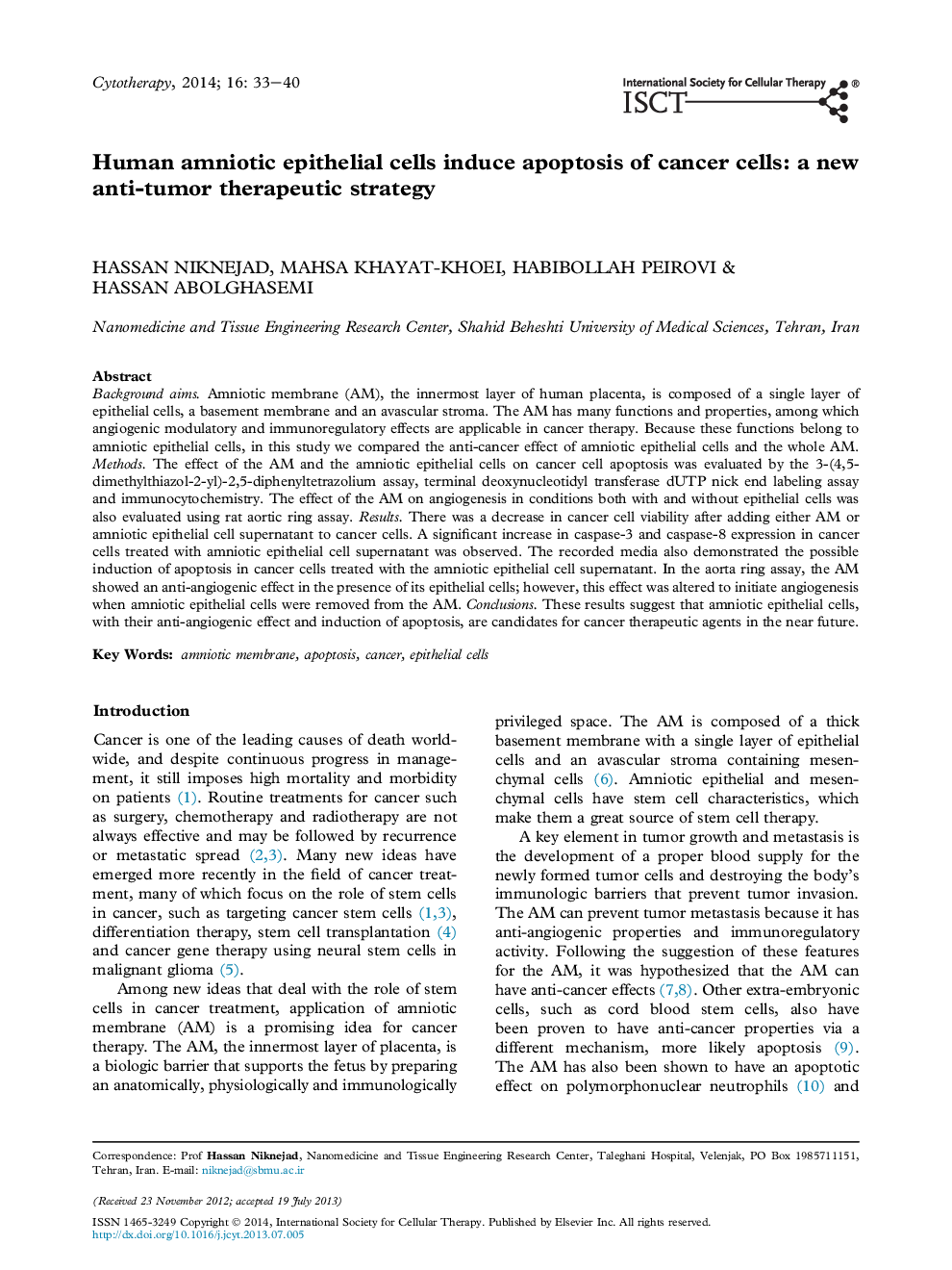| Article ID | Journal | Published Year | Pages | File Type |
|---|---|---|---|---|
| 2172247 | Cytotherapy | 2014 | 8 Pages |
Background aimsAmniotic membrane (AM), the innermost layer of human placenta, is composed of a single layer of epithelial cells, a basement membrane and an avascular stroma. The AM has many functions and properties, among which angiogenic modulatory and immunoregulatory effects are applicable in cancer therapy. Because these functions belong to amniotic epithelial cells, in this study we compared the anti-cancer effect of amniotic epithelial cells and the whole AM.MethodsThe effect of the AM and the amniotic epithelial cells on cancer cell apoptosis was evaluated by the 3-(4,5-dimethylthiazol-2-yl)-2,5-diphenyltetrazolium assay, terminal deoxynucleotidyl transferase dUTP nick end labeling assay and immunocytochemistry. The effect of the AM on angiogenesis in conditions both with and without epithelial cells was also evaluated using rat aortic ring assay.ResultsThere was a decrease in cancer cell viability after adding either AM or amniotic epithelial cell supernatant to cancer cells. A significant increase in caspase-3 and caspase-8 expression in cancer cells treated with amniotic epithelial cell supernatant was observed. The recorded media also demonstrated the possible induction of apoptosis in cancer cells treated with the amniotic epithelial cell supernatant. In the aorta ring assay, the AM showed an anti-angiogenic effect in the presence of its epithelial cells; however, this effect was altered to initiate angiogenesis when amniotic epithelial cells were removed from the AM.ConclusionsThese results suggest that amniotic epithelial cells, with their anti-angiogenic effect and induction of apoptosis, are candidates for cancer therapeutic agents in the near future.
